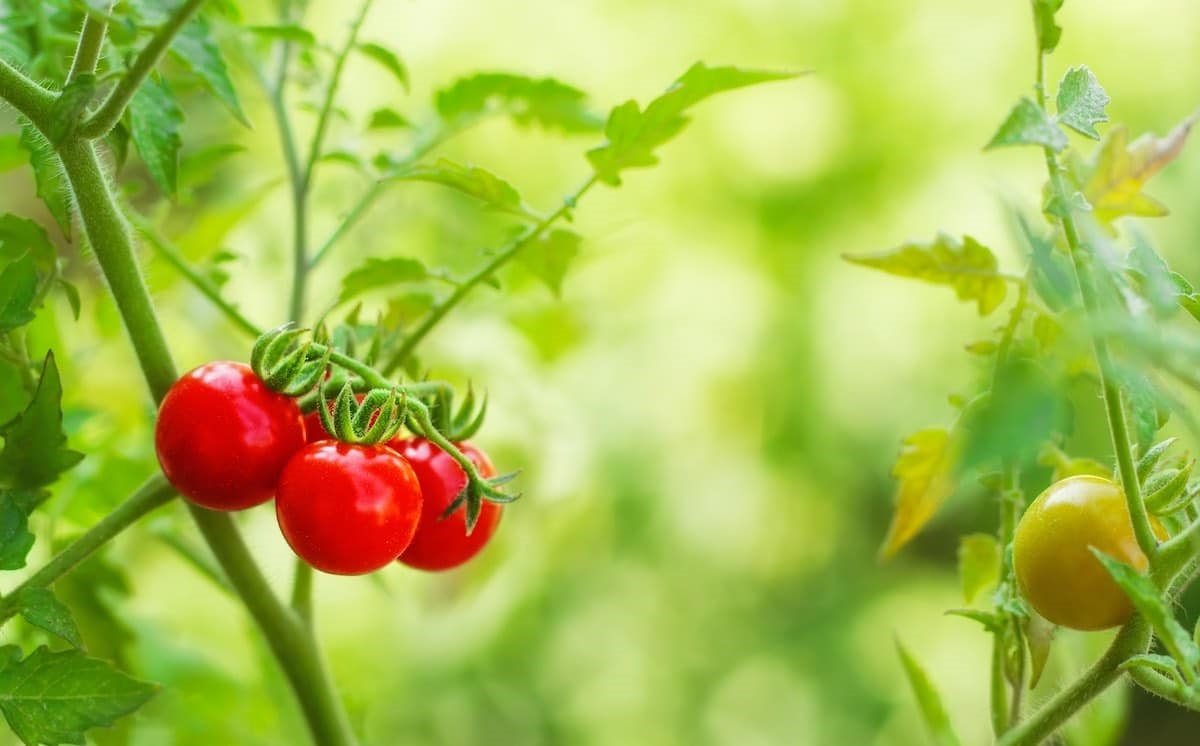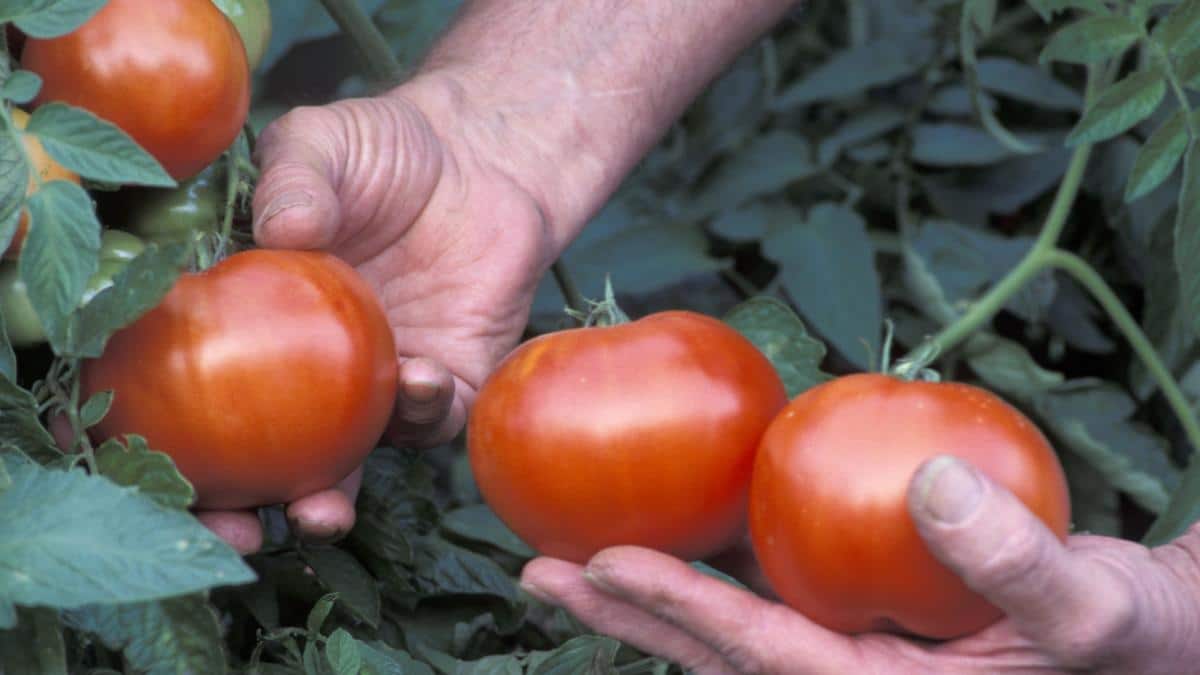
We are able to easily differentiate between most fruits and vegetables, but when it comes to the age-old question of whether tomato is a fruit or a vegetable, we don't know what to answer! The answer beforehand is that tomatoes are both a fruit and a vegetable. While fruits and vegetables count toward our recommended 5 daily servings, there are notable differences between them.
However, it might depend on whether you are talking to a botanist who uses the botanical definition, or a nutritionist or cook who might use the culinary definition. If you want to know if the tomato is a fruit or a vegetable and you want to find out, join us in this interesting article.

This is one of the most frequently heard general botanical questions. For many people, Tomatoes may have a lot more in common with lettuce or cauliflower than they do with apples or bananas, but is that really the case? So some people strongly believe that it is a vegetable because we associate it with a vegetable, while others disagree and consider it a fruit. What is the point of view of everyday shopping and what is the science?
The key question, is the tomato a fruit or a vegetable?
For those who can't wait for the end of the article, here's a quick answer: tomato is a fruit. So now you will ask yourself why they are found in the vegetable section of any supermarket or neighborhood greengrocer, next to something like cucumbers or pumpkins. Well, to the surprise of those who read this, cucumbers and pumpkins, for example, are also fruits, at least in the botanical sense. Later we will comment on the definition and difference between fruit and vegetables in order to clarify it properly.
As an introduction we tell you that Tomato is the fruit of the Solanaceae genus (Solanum lycopersicum), therefore it is a fruit because it forms the fruit of the plant.
If the tomato is a fruit, why do we say that it is a vegetable?
To put you in context, the first discussions about whether the tomato is a fruit or a vegetable date back to the end of the XNUMXth century. In 1886In New York, a 10% tax was approved that applied to all important vegetables. In this context, John Nix, who was a merchant who came from India to New York, claimed said tax from the customs officer, Edward Hedden, on the grounds that his tomatoes were fruit and so they were tax-free.
This discussion even reached the courts, three years later the Supreme Court issued a ruling declaring that tomatoes are vegetables and therefore subject to tariffs. Judge J. Horace Gray admitted at the time that although Tomatoes are botanically a fruit and, therefore, a fruit, in common language they were not considered so because they are served in a salad or dinner, not in dessert, which is how fruit is usually served.
Thus, the precedent was established to separate the tomato classification according to botanical, culinary or common at the time of purchase. Because of this, the discussion continues to this day.
Differences between vegetables and fruits

First of all, it is important to give a basic definition of what is currently considered a fruit or vegetable. It must be said that neither of these terms is a technical concept of botany, especially that of vegetables, but both have a general definition.
- Firstly, vegetables, are the edible parts of plants, except for the fruit that we humans eat. As you can see, this is a very general description that covers both the species of which we eat their leaves and the species of which we eat their stems, flowers, roots, bulbs or tubers.
- And in second place, Fruit It is the edible part of the fruit of any plant. Whether it is an herb, shrub, or tree, it is considered a fruit as long as it is a mature ovary that contains the seeds and pulp of the plant and is edible. Although modern agriculture has managed to produce some varieties with immature, null, or barely perceptible seeds, the fruit always fulfills a reproductive function in the plant.
With this in mind, there is an exuberance of horticultural products that are generally thought of as vegetables, and which are actually fruits, at least in a more formal, botanical sense.
So is the tomato a vegetable?

Despite all that has been said, it is not easy to say definitively that tomatoes are a fruit and not a vegetable. For example, the RAE defines it as:
1m Red berry, fruit of the tomato plant, with a smooth and shiny surface, in whose pulp there are numerous somewhat flattened and yellow seeds.
However, there are tomato varieties that taste sweeter than others. It's obviously not as sweet as a strawberry or a banana, so it's easy to slip into the crisper box. Indeed, the tomato is neither sweet nor salty: it is umami, a flavor that is found more and more in today's cuisine. The umami flavor is defined as a mild and prolonged taste. For example, the flavor of cured meat, seafood, and fermented foods like cheese, or in this case tomato.
Going back to whether tomato is a vegetable or not, vegetables are generally considered to be the plants we grow in gardens and eat for food, excluding fruits and grains. So since we only eat the fruit of the tomato plant, which allows the plant to continue producing more food, technically not considered a vegetable. Although it is grown in orchards around the world. Despite this, it is known that this does not prevent tomatoes from sharing a group with other fruits such as cucumbers or peppers, they are considered vegetables due to their food use.
I hope this article has been useful for you to learn more about a fundamental food in the Mediterranean diet, such as the tomato.